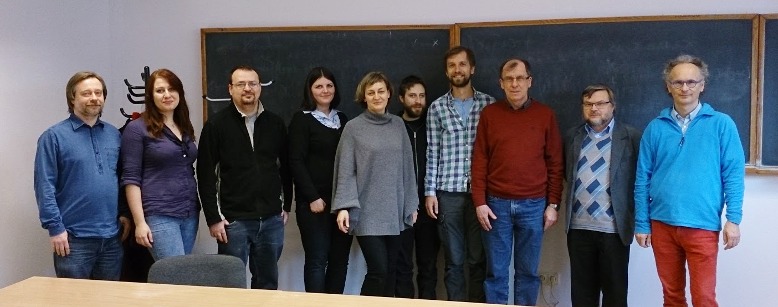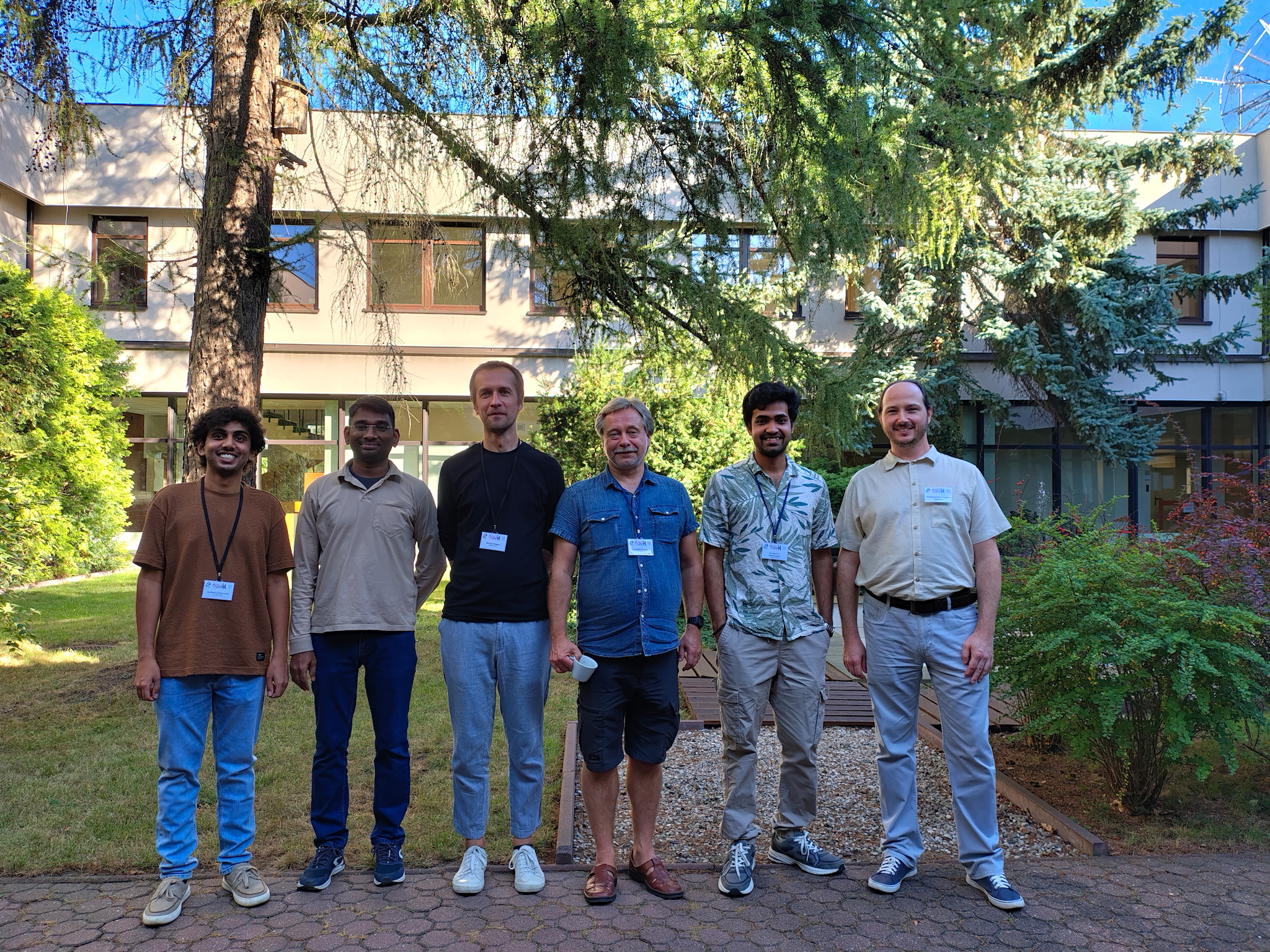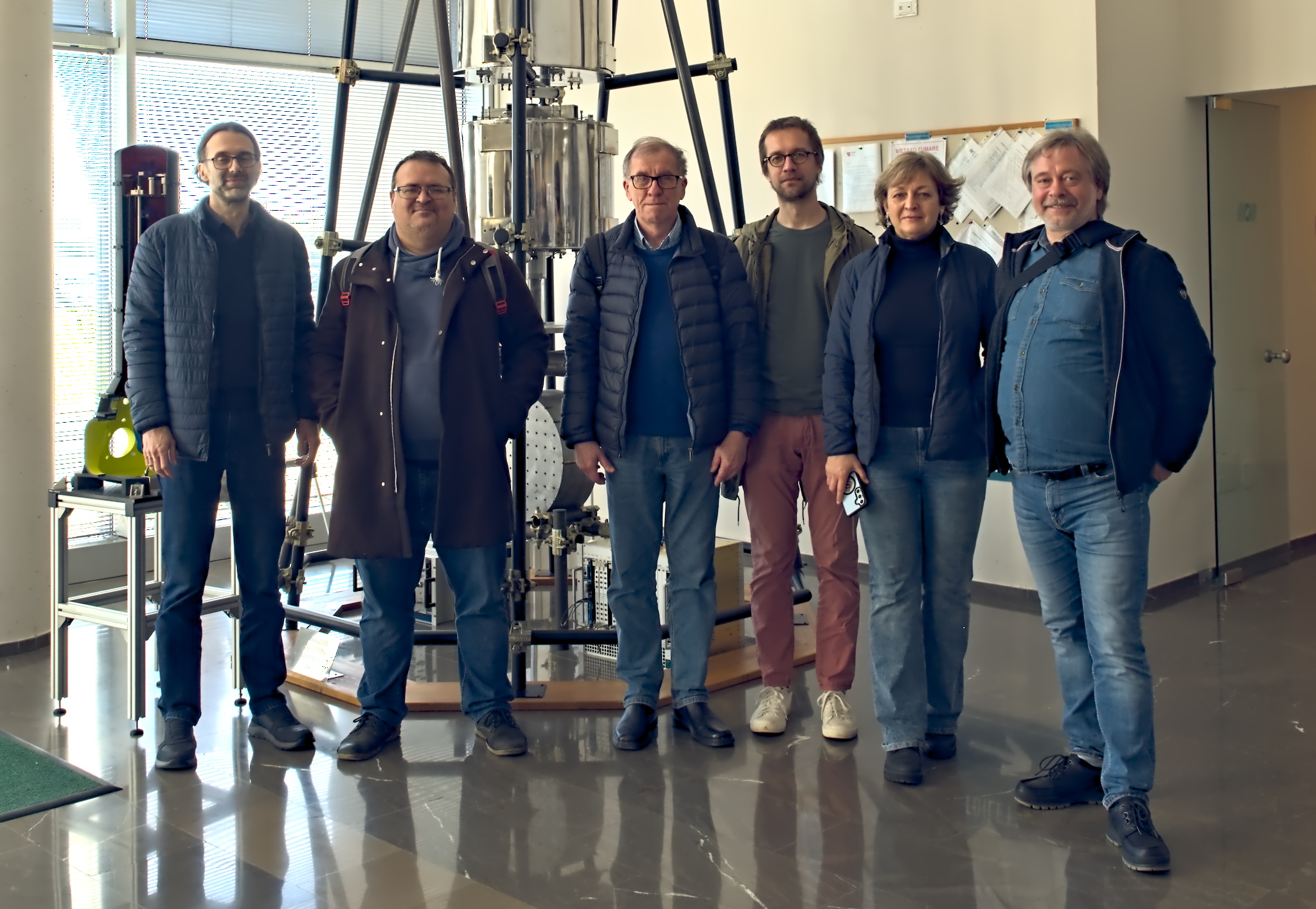General info
Virgo-Polgraw is a Polish team of researchers analyzing the data collected by the LIGO and Virgo detectors in search for gravitational waves predicted by the general theory of relativity by Albert Einstein .
Gravitational waves astrophysics is a new and promising field of research of the Universe. In contrast to the observations of the electromagnetic waves (radio waves , visible light , X-rays and gamma ), which are the main source of our current knowledge, we ‘’listen’’ to the Universe by registering minor disturbances of the space-time curvature using the LIGO and Virgo laser interferometric detectors. Gravitational waves are emitted during the largest cosmic cataclysms: mergers of binary systems of neutron stars or black holes , explosions of supernovae , and by other sources, eg. unstable or deformed rotating neutron stars . The direct detection of gravitational waves allows the study of objects that are dark (do not shine in electromagnetic waves ), testing the theory of gravity in the dynamic regime of strong gravitational field, and the direct study of the interior of neutron stars which contain the densest and most extreme matter existing currently in the Universe. These informations cannot be currently obtained using other methods.
In addition to the data analysis and the development of the statistical signal detection theory, we are modeling astrophysical sources of gravitational waves , make predictions about the population of these sources, search for the electromagnetic waves emission accompanying the gravitational waves and contribute to the construction and running of the Virgo interferometer.
The leader of the Virgo-Polgraw group is prof. Andrzej Królak from the Mathematical Institute PAS . Polish participation in the Virgo project is on the Polish Roadmap for Research Infrastructure .
Members



- Institute of Mathematics, PAS
- Nicolaus Copernicus Astronomical Center, PAS
- Michał Bejger (bejger@camk.edu.pl )
- Paweł Ciecieląg
- Przemysław Figura
- Sreekanth Harikumar
- Brynmor Haskell (bhaskell@camk.edu.pl )
- Anirudh Nemmani
- Mariusz Suchenek
- Sudhagar Suyamprakasam
- Warsaw University Astronomical Observatory
- Tomasz Bulik (tb@astrouw.edu.pl )
- Dorota Rosińska
- Pinaki Roy
- Sreeta Roy
- Paweł Szewczyk
- Pratul Manna
- Faculty of Physics, University of Warsaw
- Marek Szczepanczyk
- Alejandro Casallas-Lagos
- Department of Physics, University of Bialystok
- Piotr Jaranowski (p.jaranowski@uwb.edu.pl )
- Andrzej Pisarski
- National Centre for Nuclear Research
- Orest Dorosh
- Andrzej Królak
- Adam Zadrożny
- Institute of Theoretical Physics, University of Wrocław
- Arkadiusz Błaut
- Astronomical Observatory of the Jagiellonian University
- Jerzy Kubisz
- Volodymyr Marchenko
- Michał Ostrowski
- Łukasz Stawarz
- ACK Cyfronet AGH
- Patryk Lasoń
- Mariusz Sterzel
- Center for Theoretical Physics, PAS
- Institute of Astronomy, University of Zielona Góra
- Centre for Astronomy, Nicolaus Copernicus University in Toruń
- AGH University of Science and Technology
Research topics
Data analysis and methods of analysis
- Searches for periodic gravitational waves
- CBC post-merger analysis
- Machine learning techniques in application to gravitational waves searches
Modelling of astrophysical sources of gravitational waves
- models of extreme matter sources of GW - mainly neutron stars; równania stanu
- models of lensed gravitational waves
Improvements of the Virgo detector sensitivity
- newtonian noise
- low frequency magnetic noise
Grants/Sponsors
Selected grants NCN :
- “Science with Gravitational Waves in the Era of LIGO-Virgo-KAGRA Discoveries” nr UMO-2023/49/B/ST9/02777
- “Gravitational-wave astronomy: participation of the Polgraw group in Advanced Virgo and Advanced LIGO projects” nr UMO-2017/26/M/ST9/00978
- “Udział Polski w projekcie Advanced Virgo” nr UMO-2014/14/M/ST9/00707
MNiSW
